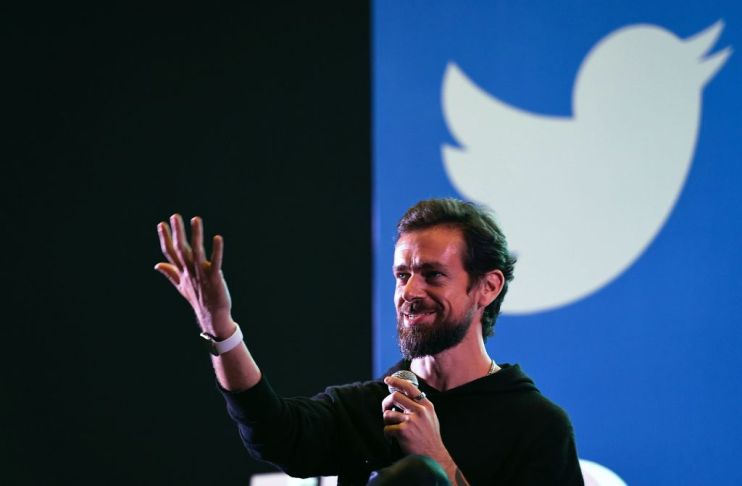Twitter shares rise as revenue beats $1bn for the first time

Shares in Twitter rose as much as eight per cent in pre-market trading today after the social media firm missed profit estimates but beat $1bn in quarterly revenue for the first time.
Twitter reported net income of $119m (£91m), down from $255m on the same quarter last year and behind expectations.
However, the social media giant posted revenue of $1.01bn — up 11 per cent and the first time it has broken the $1bn mark. And it also reported 21 per cent growth in monetisable daily active users (MDAU) to 152m.
Twitter chief executive Jack Dorsey said: “2019 was a great year for Twitter. Entering 2020, we are building on our momentum — learning faster, prioritizing better, shipping more and hiring remarkable talent. All of which put us in a stronger position as we address the challenges and opportunities ahead.”
Twitter has predicted total revenue for the first quarter of 2020 to be between $825m and $885m, with operating income anywhere between zero and $30m.
It also forecast headcount growth of 20 per cent or more in 2020, with a particular focus on engineering, product, design and research. This is expected to increase total costs and expenses for the full year by 20 per cent.
The results come as the social media platform pumps money into developing its advertising format to improve return on investment for brands and boost its ability to monetise users.
In the third quarter Twitter missed expectations for both profit and revenue, sending its shares spiralling almost 20 per cent.
The disappointing figures came after the site replaced older ad formats and battled technical issues including bugs that impacted its ability to target ads and share data with advertisers.
The firm also blamed unusually low demand over the summer due to a dearth of major events compared to the previous year.
Dorsey has been vocal about his company’s efforts to crack down on online abuse — a factor that has come under fierce scrutiny from regulators.
Last month the firm trialled a new feature that allows users to block replies, which it said would help to curb abusive behaviour and cyber bullying.
Twitter ‘improves’ on brand safety issues
Jim Cridlin, global head of innovation and partnership at WPP agency Mindshare, said brand safety was a key concern among many large advertisers.
“Despite Twitter’s ad-targeting problems last year advertisers seem comfortable the company is helping tackle the issue,” he said.
Unlike rival Facebook, Twitter also rolled out a political ad ban in November ahead of the General Election. It introduced similar measures in the US in a bid to “protect the integrity of election-related conversations”.
“We believe political message reach should be earned, not bought,” Dorsey said at the time.
“Twitter, while showing some great success in growing its userbase – one that is often engaged, active and somewhat fiery – is still struggling with growing costs and the lag from technical issues that have been bugging the platform,” said Tamara Littleton, chief executive and founder of social media agency the Social Element.
“What’s really interesting to consider, however, is its long-term future, rather than these short-term results: already refusing political ads, it is now working hard to remove media designed to mislead people and seems to be working to be an industry leader in cracking down on misinformation.”
‘Pretty darn good’ user growth
“Twitter numbers look pretty darn good and a bounce back from a lacklustre third quarter characterised by a serious slowdown in revenue growth and technology problems,” Markets.com’s chief market analyst Neil Wilson said.
“It’s a good bounce back from the ad-bug riddled third quarter release when nine per cent revenue growth was $50m short of expectations.
“It’s also encouraging that Twitter is executing on its strategy in a quarter when Snap struggled and Facebook also found life tougher. For ad-driven business this was a quarter beset by a shorter holiday shopping window in the US, so we should commend Twitter for its efforts.”